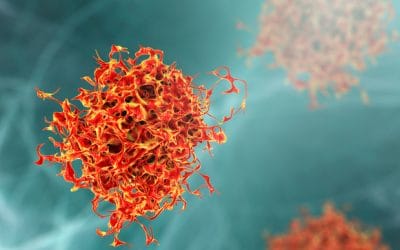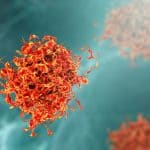A Medical Research Council doctoral training partnership (MRC-DTP) student from King’s College London (KCL) has revealed new potential avenues for cancer therapies through RNA-binding proteins in a new paper published in Cell Press.
As part of Jen Coleman’s PhD thesis, the new paper identifies the role of LARP4A and LARP4B in the development of sarcoma and carcinoma cancers.
Carcinoma cancers occur in the skin or tissue cells that line the body’s internal organs, such as the kidneys and liver, while sarcoma cancers are characterised by tumours that grow in the body’s soft tissue cells.
Researchers from KCL’s Conte and Grigoriadis labs discovered that by blocking the two RNA-binding proteins, cancer tumours were prevented from growing and that the proteins play different, distinct roles within cancer cells.
Using transcriptomic profiling and high-content multiparametric analyses, researchers identified a central role for LARP4B, but not LARP4A, in regulating cell cycle progression, particularly through modulating key cell cycle proteins including Cyclins B1 and E2, Aurora B and E2F1.
Highlighting the differences between the two RNA-binding proteins for the first time and their role in cancer development, researchers hope that their research can provide new avenues for drugs to therapeutically target LARP4A and LARP4B and highlight the importance of RNA-binding proteins in cancer research.
The KCL labs intend to further research the precise mechanisms that LARP4A and LARP4B use to promote cancer growth to identify targets for therapies.
Sasi Conte, professor of structural biology, head of KCL’s Randall Centre for Cell and Molecular Biophysics and director of KCL’s Centre for Biomolecular Spectroscopy, commented: “RNA-binding proteins play crucial roles in almost all aspects of cellular biology and therefore it is not surprising that their dysregulation is linked to cancer. However, it has been difficult to put RNA-binding proteins at the forefront of cancer biology.
“Our results show that two such proteins, LARP4A and LARP4B, promote cancer growth and spread that, if targeted, might contribute to cancer therapy.”










